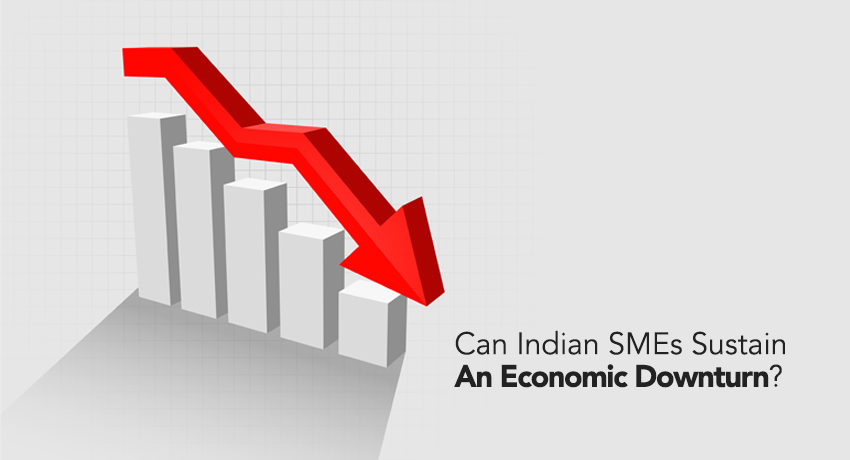Can Indian SMEs sustain an economic downturn?

Introduction
Small businesses, from Kirana shops to neighbourhood businesses, are essential to India’s economy. But despite their significance, these small-scale enterprises lack funding. According to research by the Asian Development Bank (ADB), one solution is to build a credit-information infrastructure for small and medium-sized businesses (SMEs) and offer credit guarantees to make it easier to receive financing.
It is not common for SMEs to maintain audited accounts and financial statements, which are necessary for evaluating financial health. To compensate for the additional risk to creditors, lending to SMEs will need more collateral and higher interest rates. The creation of SME credit risk databases, credit bureaus, and credit ratings can assist lenders in determining the risk involved in offering loans to small businesses.
SME contribution to financial inclusion and improvement
For several reasons, SMEs appear and develop on their own in a wide range of marketplaces across countries. An economy benefits in numerous ways from its emergence alongside population increase.
They can support decentralized economic growth and balanced regional development since they are dispersed across rural and semi-urban areas. This, in turn, has the potential to reduce rural-urban migration significantly. It can facilitate labor re-migration from urban to rural areas during periods of unprecedented economic catastrophes.
COVID-19’s effects on Indian SMEs
Due to their size, the scope of operations, and accessibility to funding, SMEs have been one of the most susceptible sectors during the pandemic. Studies and polls revealed that the nationwide lockdown implemented in April 2020 had a detrimental effect on about 95% of businesses, with 70% of operations affected until August 2020.
According to statistics, approximately 40% of firms experienced service interruptions until end-February 2021, even after the gradual lifting of the lockdown. Market accessibility, overall productivity, and access to more funding are the three main obstacles SMEs must overcome. Compared to the 46% decline experienced during the nationwide lockdown in 2020, an average 11% decrease in the business volume of Indian SMEs was observed in 2021.
Troubles SMEs face
Lack of Resources – SMEs in India are substantially disorganized. Most of their transactions are carried out in cash and are not adequately recorded in accounting records.
These companies struggle to obtain business loans from the formal sector without reliable transaction data, which prevents them from receiving the required credit score.
Risk perceptions – Most banks view SMEs as hazardous customers without good credit scores or collateral.
SMEs have distinct financial needs depending on the size of the company, the cash flow pattern, and vendor engagements. When a start-up client is involved, this issue becomes more serious. Even if banks are persuaded to give out loans, the interest rate will be greater than usual.
These peculiar challenges warrant customized services provided by one stop fintech companies like Niyogin.
The Next Steps
SMEs must evaluate their financial situation and security at the earliest. They must re-plan their total value proposition by enhancing product quality, bolstering distribution channels, and utilizing cutting-edge advertising techniques, among other things. A robust digital ecosystem must be built to expand market outreach among buyers and providers.
The benefit of financial management to a company is that it examines and comprehends its profit. Make judgments on pricing and inventory planning.
As you decide whether to purchase assets, consider if the company has enough cash flow to support operations. A small firm may be led to sustainable growth with a financial strategy.
The government may step forward in the future to offer soft loans with a longer repayment term and enhanced credit limits to boost SMEs during the pandemic crisis. However, until then, companies like Niyogin provide tailor-made products to suit business needs in both the short and long term at favorable terms and conditions.

